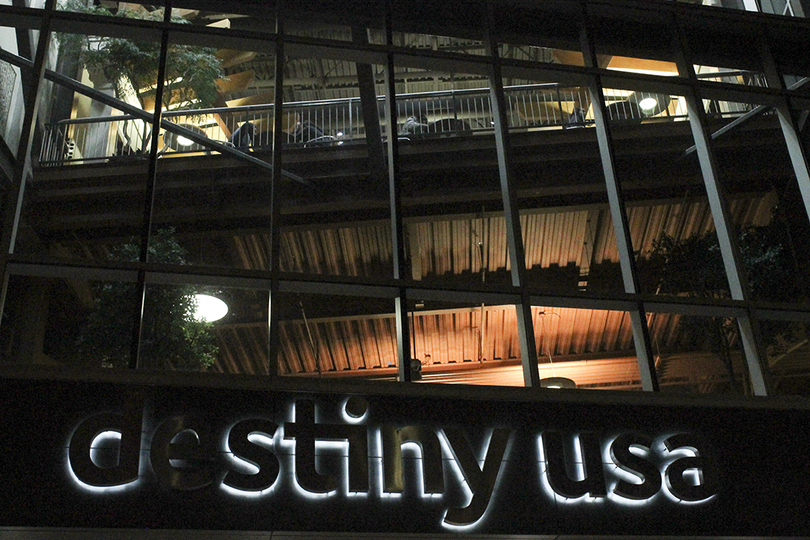Destiny USA shooter deserves justice, not punishment

Daily Orange File Photo
Americans have always held a certain fascination for the apparent flaws of their country’s criminal justice system. In recent years, shows like Netflix’s “Making a Murderer” have capitalized on this interest by telling stories of that system working at its very worst.
However, what’s currently happening to 21-year-old Kyree Truax is not only legal, but also pretty common, and that’s exactly the problem. It seems that our laws and practices are poorly equipped to deal with a situation like this one with such vast fields of moral grey area.
On Nov. 29, 2019 — Black Friday — panicked shoppers rushed out of the Destiny USA mall after hearing gunshots fired inside. This incident quickly became known as the “Destiny Mall Shooting,” but the malicious motives implied by that label were soon to be disproven. Security camera footage showed the shooter, Truax, getting abruptly assaulted and appearing to fire his gun at his attacker. His attacker received a non-fatal shot to the leg.
Truax was arrested soon after the situation unfolded. In court, a grand jury ruled that Truax was acting in self-defense, but Truax still faces serious jail time for multiple other offenses. The most serious being criminal possession of a weapon, made even more serious by the fact that the gun was loaded. Assistant District Attorney Anthony Margovski is asking that he serve the maximum sentence, 15 years in prison.
“The grand jury apparently found that he was justified in firing the weapon, but justification is not a defense to the illegal possession of a weapon,” said Professor Gary Kelder, who teaches at SU’s College of Law.
He said the grand jury’s decision regarding Truax’s assault charge doesn’t necessarily help his case with the other crimes of which he’s accused. Speaking to the likelihood of the defendant actually having to serve this 15-year sentence, he said though the prosecutor recommended 15 years, the judge will make the final decision.
Legally speaking, the way that this case has unfolded appears to be both fair and by the books. Its problem, however, lies outside of its technical legitimacy. As ruled by the jury, the mall security footage pretty clearly shows Truax’s motivation to be the defense of his life. While it wouldn’t mean all that much on its own, the lack of malicious intentions is further supported by the fact that the injuries Truax inflicted were ultimately non-fatal. With that in mind, it is wrong that a 21-year-old man should spend the next 15 years of his life in prison for possessing the gun that he ultimately used to defend himself.
Lawyers and attorneys have to focus on the questions of legality, but the rest of us are not so limited. We can focus on the real issues that often hide behind cases such as this one. It’s important to remember the social dynamics that lead to these types of crimes. We can and should punish people for carrying weapons without permission, but stopping there will only ever push forth a vicious cycle that we don’t even fully understand.
It’s easy to see nothing in these kinds of stories but a violent criminal receiving the punishment that they deserve. What’s harder to detect are the underlying factors that cause stories like this to unfold. It’s vital that we recognize some of the disturbing facts lying below the surface: for example, it should disturb us to hear that a 21-year-old man living in America felt so unsafe that he felt the need to arm himself with a loaded gun.
And then there’s the punishment itself. Many look at prison and see a chance at a better life, but it’s often far more likely that it’s the end of one. Research has shown that the majority of prisoners will continue to break the law after serving time, indicating that our system is simply ineffective as a method of rehabilitation. Instead, it transforms an inmate’s mistake into their new lifestyle.
These things can’t be changed overnight. It can be difficult to see where there are any solutions at all. That is why it’s essential that we carefully examine situations such as the case of Kyree Truax. Although its legal conclusion has become predictably bleak, its social implications don’t have to be.




